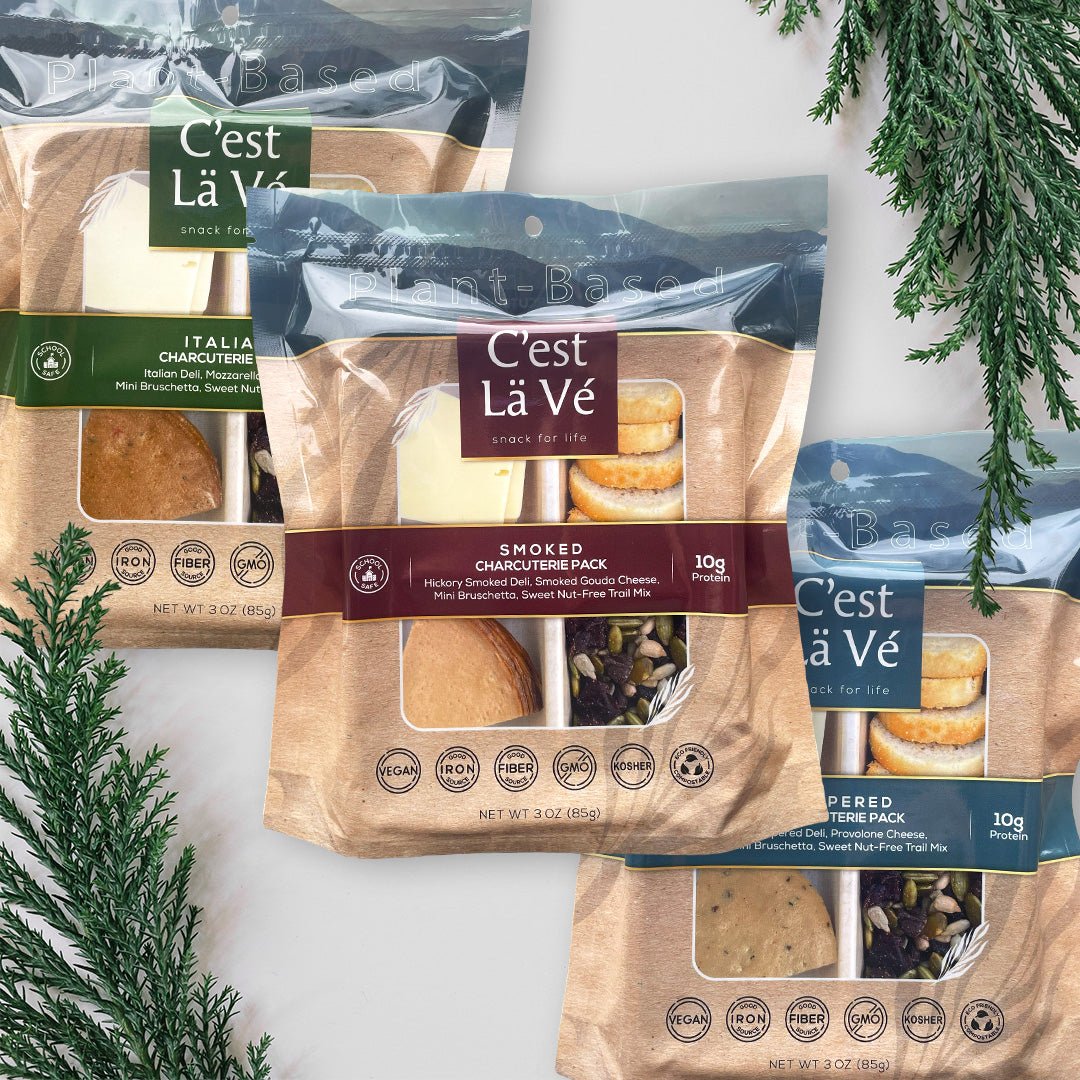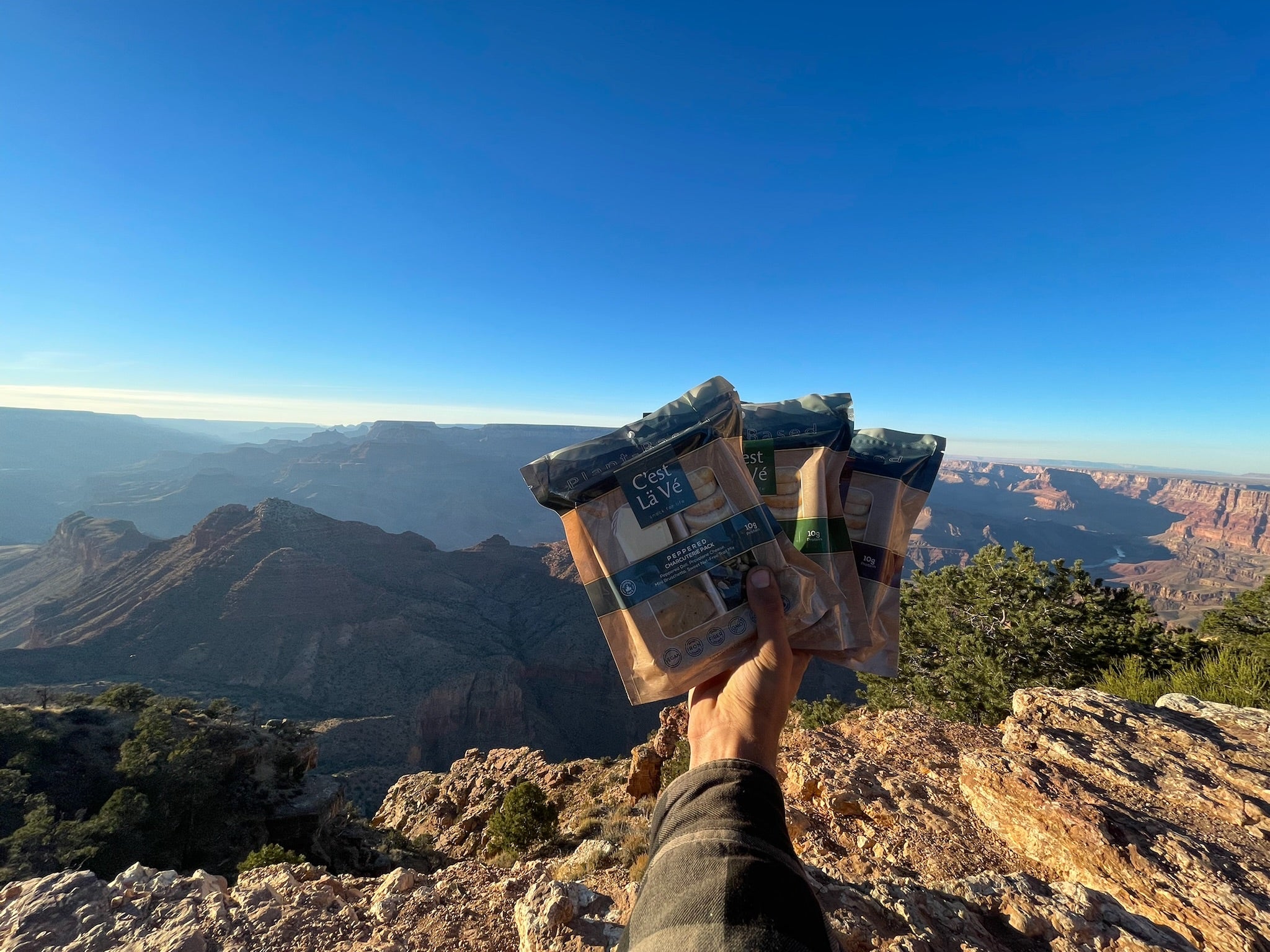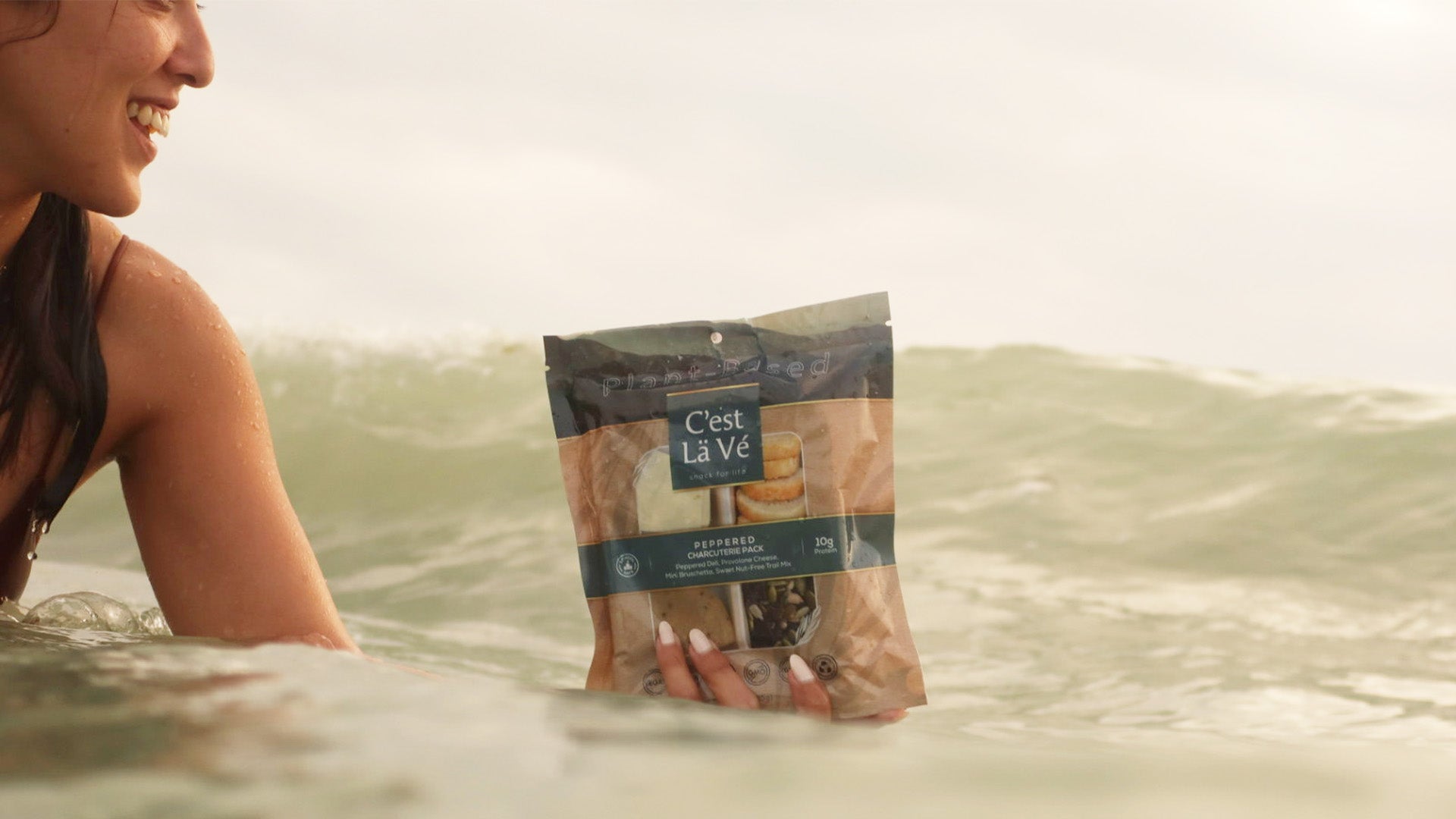Ingredients
Are your charcuterie packs vegan?
Yes, all of C'est Lä Vé charcuterie packs are 100% vegan. We work closely with our suppliers to ensure their ingredients and methods for preparing and storing our raw ingredients are 100% vegan in nature.
Are your charcuterie packs allergen free?
The “Top 8” regulated allergens are: Dairy, Eggs, Peanuts, Tree Nuts, Soy, Wheat, Fish, and Shellfish. Our vegan charcuterie packs are free of Dairy, Eggs, Peanuts, Tree Nuts, Fish, and Shellfish. But they do contain Coconut, Soy, and Wheat.
We are working on adding an 100% Allergen Free charcuterie pack soon, stay tuned.
Are your charcuterie packs gluten free?
No, our Italian, Smoked, and Peppered charcuterie packs aren't gluten free, but we are working on adding gluten free pack soon. Stay tuned.
Are your charcuterie packs Kosher?
Yes, All of our plant-based charcuterie packs are certified Kosher Parve under North American Kosher Supervision (Flag K) - an Orthodox Jewish Rabbinic Supervision.
Are your charcuterie packs Organic?
Some of our charcuterie packs ingredients are certified Organic, but the whole pack isn't certified Organic. We are working on adding an 100% Organic charcuterie pack soon, stay tuned.
Do you use Genetically Modified or GMO Ingredients in your charcuterie packs?
No, we vigorously source certified non-genetically engineered ingredients from all of our suppliers. Everyone deserves to know what’s in their food. We only use non-GMO ingredients in our plant-based charcuterie packs.
Are the coconuts used in your coconut-based ingredients harvested by monkeys or children?
We share your concern, and we want to assure you that we hold ourselves to the highest standard regarding the treatment of both animals and being a good steward of the environment. We’ve confirmed with our suppliers that the coconuts used for our coconut ingredients are not harvested by monkeys or children. We are committed to the use of suppliers with high ethical standards that are against child labor and the use of animals.
Are your charcuterie packs or ingredients ever tested on animals?
We do not conduct, commission, or participate in animal testing of any kind of our ingredients or finished products. We are committed to the well-being of all animals and pledge to not conduct, commission, or be party to any animal testing, now or in the future.
Are your products dairy free?
Yes, all C'est Lä Vé charcuterie packs are dairy-free, lactose-free and casein-free, and made in a facility that does not use any dairy ingredients.
Are your charcuterie packs meat free?
Yes. C'est Lä Vé charcuterie packs does not contain any meat and is made in a 100% meat-free and dairy-free facility.
Should I refrigerate C'est Lä Vé charcuterie packs?
Absolutely. Our charcuterie packs are perishable and should always be stored in the fridge.
Packaging
Can I recycle the charcuterie pack packaging?
No, the charcuterie packs packaging can’t be recycled. Today, most snack packs are made of flexible film that’s not recyclable, so we developed an biobased tray that can be home and commercially composted. If you don’t have access to any of our composting options, please dispose of the tray and bag in the garbage.
C'est Lä Vé packaging consist of plant-fiber tray, and Post Consumer Recycled (PCR) bag. The tray is fully compostable in both industrial and home settings. While the PCR bags are NOT compostable, they can reduce greenhouse gas emissions by an estimated 15.25%.*
What parts of the packaging are compostable?
C'est Lä Vé packaging consist of plant-fiber tray, and Post Consumer Recycled (PCR) bag. The tray is fully compostable in both industrial and home settings. While the PCR bags are NOT compostable, they can reduce greenhouse gas emissions by an estimated 15.25%.*
*Source: https://how2recycle.info/calculator
What is your compostable tray made of?
Our trays are made of 50% sugarcane bagasse and 50% bamboo pulp which is a highly renewable resource. Sugarcane bagasse is a byproduct of the sugar production process that would normally go to waste, but through a high-heat, high-pressure molding process, it can be transformed into plates, bowls, trays, containers and more. By combining it with bamboo pulp, a sustainable and renewable resource, we are able to reduce waste while providing a practical and environmentally responsible packaging solution.
What does compostable mean?
Compostable means that an item will break down into usable compost within a certain amount of time under specific conditions. For example, natural materials like vegetable peels, grass clippings, and specially designed items like C'est Lä Vé compostable charcuterie pack trays break down into compost that can enrich soil. Our trays are OK Compost Home - TUV Austria certified.
What's the difference between 'biodegradable' and 'composable' packaging?
The term ‘biodegradable’ represents a process, but not necessarily under what conditions or time frame, also, the rate of decomposition can vary significantly. Technically, all chemical compounds can be biodegradable under the right conditions, and will decompose over a certain period of time, but that time could be hundreds or thousands of years. For example, wood is biodegradable, but wooden structures don’t break down and can stand for generations. Trees are biodegradable, but stand for hundreds of years. If a material is compostable, it means that under composting conditions (heat, humidity, oxygen, & microorganisms) it will break down to CO2, water, and a nutrient-rich compost within a specific time frame.
Can I throw compostable packaging anywhere I want (i.e. ocean and nature)?
Definitely not! Littering is never a sustainable option! Compostable packaging is not meant to be disposed of in marine environments or land ecosystems and should be disposed of in the proper waste stream where it will biodegrade into compost.
How can I compost the tray?
Our charcuterie packs packaging consist of plant-fiber tray, and PCR bag, the tray is commercially compostable and also belong in your home compost bin. We understand that not all areas have industrial composting facilities, so you can compost at home! Find industrial composting services near you and learn how to start backyard composting. Or, you can use the link below to find a drop-off location near you! If you don’t have access to either of these options, the tray should be discarded in the garbage and not recycled.
Commercial composting facilities near me
How do I compost this pack at home?
There are many techniques to compost at home and if you are new to it feel free use the following guides: Minnesota Pollution Control Agency Composting, and Eco-Cycle backyard composting.
How do I compost the charcuterie pack tray at a commercial facility?
You can either drop off your composting waste at Commercial composting facilities near you or Find industrial composting services near you.
What is the environmental impact of these packs?
We’re conserving resources by making the charcuterie packs packaging mostly from plants like sugarcane and bamboo byproducts. They have a lower carbon footprint than conventional snack packaging and use less energy to produce. Nonetheless, sending our compostable trays to an industrial facility or composting at home keeps them out of landfills — a small step towards reducing waste.
Will this pack still protect my food?
Yes, our charcuterie packs packaging is intentionally designed to protect the flavor, freshness and quality of the delicious C'est Lä Vé vegan charcuterie inside. The tray is only meant to start biodegrading under specific composting conditions, after you’re done eating your snack.
Is your compostable packaging safe?
Yes, our packaging is approved by multiple international organization to ensure your safety.
Will your charcuterie pack packaging start to dissolve in my fridge?
No, the tray will not dissolve in your fridge. Our tray is designed to break down in backyard composting bins and industrial composting facilities, which have much higher levels of humidity and heat than a standard fridge.
What does 'industrial compostable' / 'commercially compostable' mean?
Industrial composting facilities (also known as commercial or municipal composting facilities) are professional waste processing facilities that convert organic waste (like food waste, yard waste and specially designed items like C'est Lä Vé compostable charcuterie packs) into high quality compost, which can be used for gardening and agriculture. These facilities use higher levels of heat and moisture than an average home compost pile. Our packaging is certified home and industrial compostable by the OK Compost - TUV Austria Institute and should be processed in an backyard composting bin or industrial compost facility.
Are the materials used to create this packaging sustainably sourced?
Yes, we work carefully with our suppliers to ensure the sugarcane and bamboo used to create our compostable packaging are sourced sustainably and will not take away from food-grade crops.
How long does it take the packaging to break down into compost?
These packaging will fully degrade in industrial composting conditions in approximately 12 weeks (industry standard).



